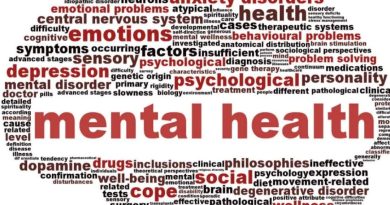Humanity Before Sexuality: Rwanda’s Shining Example on LGBTIQ+ Community Rights
Whereas members of the LGBTIQ+ community in other East African countries are an endangered lot, in Rwanda, they are thrilled by efforts to guarantee and protect their fundamental human rights like all other citizens.
The government of Rwanda, in partnership with local and international not-for-profit organizations, is doing everything possible to ensure that the community members have unfettered access to healthcare services. Something the Lesbians, Gays, Bisexual, Transgenders, Intersexual, and queer (LGBTIQ+) communities in Uganda, for example, can only dream of given the draconian Anti-homosexual Act 2023.
“It’s not like before; there were people who were depressed and wouldn’t leave their houses. Others were sunk in drugs, and most of their nights would be in clubs. They no longer had the hope of life,” said one of the members of the LGBTIQ+ community in Kigali.
The LGBTQ+ and so many other unidentified groups were among the most discriminated against people based on their sexual orientation. Primarily based on their religious beliefs and culture, they would be attacked by some people, calling them evil.

According to a survey (Study brief, LGBT community in Rwanda (aphrc.org)) by the Health Development Initiative (HDI) and African Population and Health Research Center (APHRC) in 2022, about two-thirds of survey participants had experienced at least one form of discrimination.
This occurred mostly when the LGBTQ+ community members participated in religious (44.9 percent) or cultural events (41.7 percent) and when looking for (or in) housing (30 percent). Discrimination in health care access was at 22.6 percent, the report says.

Source: Examination of LGBT people’s lived experiences and public perceptions of sexual and gender minorities in Rwanda by HDI and APHRC
Helena Mpazi (name changed at her request) is the leader of one local LGBTIQ+ community organization and is among the founders of this community in Rwanda. Mpazi explains how their situation changed from a nightmare to the freedom they enjoy today.
“In 2007, we went to Nairobi for a meeting where we launched our community in East Africa. When we came back, we found that the Rwandan Parliament had introduced a bill to criminalize homosexuality. It was like crucifying our members, our people,” said Mpazi.
The group embarked on a successful, intensive, and extensive high-level advocacy campaign against the proposed law.
“We approached various organizations that work on human rights, both local and international, and we appealed constantly to the parliament for this law not to be passed. In 2009, the Minister of Justice, Tharcisse Karugarama, announced that homosexuality should not be a burdening concern to the country or the people themselves, so the proposed amendment to criminalize homosexuality was dropped,” Mpazi narrates with measured satisfaction.
Even so, Mpazi says, society, including healthcare providers, still marginalized them. “They would call us names that demean us, and some of us would be harassed in their villages, where they lived or anywhere else; accessing some of the services, including healthcare, was so difficult.”
Some who were students had to drop out, and others were dismissed from work or left on their own after failing to put up with humiliation and discrimination. Their families evicted some; we had a lot of anguish, and poverty was ravaging our community members. Depression invaded them. Some even committed suicide,” Mpazi remembers with tearful eyes.
Struggle to get medical attention.
Mpazi continued, saying that they started to struggle, and most of the time, when they had to seek medical attention to treat sexually transmitted diseases, it was a problem.
“They would ask you many unnecessary and quite embarrassing questions, and this in front of other patients and nurses, and when they learned that your partner is another male, they couldn’t treat any of you,” said Emmanuel (name changed).
Emmanuel, 39, from a business management background, says that he can’t forget when he had to seek medical attention after getting involved in unprotected sexual intercourse with an uncertain partner, and he ran to the health service facility to get PrEP (Pre-Exposure Prophylaxis).
“My mind was like, I will never go back there even if I have to die,” Emmanuel said categorically.
Manuma (name changed), in her 30s, says that she had to get a pregnancy test while she was sure this would never happen to her.
“I told them that what I am being treated for has nothing to do with pregnancy, but they insisted that I get a test; I had to pay for a service I was very sure I didn’t need because I couldn’t tell them that I am lesbian,” Manuma growled.
“So, whenever I had an infection and wanted my partner and me to be checked together, I would say she was my sister or cousin. It was not true. Why would I have the same infection with my sister or cousin?” Manuma added.
The survey by HDI and APHRC states challenges to accessing essential services. Almost two-thirds of the participants reported that they had experienced challenges while accessing food services (64.1 percent). Approximately half of the survey participants experienced challenges while accessing social services (54.3 percent), health services (47.3 percent), and financial services (42.9 percent)

Source: Examination of LGBT people’s lived experiences and public perceptions of sexual and gender minorities in Rwanda by HDI and APHRC
Attention by the ministry of health
“In Rwanda, prostitution was once considered inappropriate and informally prohibited, leading to the spread of HIV and other STDs,” said Suleman Muhirwa, a public health and epidemiology specialist who works as a Program Officer at HDI, a local NGO based in Kigali striving to improve both the quality and accessibility of healthcare for all Rwandans and particularly marginalized groups, among others LGBTIQ+.
In 2006, the Rwandan government launched a program of free HIV (Human Immunodeficiency Virus) testing, focusing on sex workers. However, men who have sex with men (MSM) remain a hidden population due to the social stigma associated with their sexual orientation.
A cross-sectional study by the Rwanda Biomedical Center in Kigali revealed that HIV prevalence was 10%, and anti-retroviral drugs and free protective methods were freely given. The HIV epidemic in Rwanda has stabilized at 3% in over a decade, but vulnerable groups like sex workers and discordant couples still face high disease burdens. In Rwanda, MSM are four times more likely to be living with HIV than the general population.
Peer-to-peer approach
Muhirwa says that it was not easy to identify the members of the LGBTIQ+ community because they do not like to show themselves. It was clear that there was a high prevalence of HIV among them, but some of them were not receiving proper treatment because they were hiding.
“We knew some of them who are famous. These are the ones we approached one by one, and they connected us with other members of their groups; slowly, we got to see them and reach their groups where we can talk and understand the challenges they face,” said Muhirwa.
“We go down there in the community to meet with them and create a friendly environment; we listen to them and encourage them to seek medical attention,” Muhirwa added.
According to Muhirwa, the big challenge is that some of them had tried to seek medical attention before but were mistreated and discriminated against; they then decided not to go there anymore.
Muhirwa says that the LGBTIQ+ community has formed different groups based on their locations, allowing HDI and other organizations to meet and connect them to the health service providers under their umbrella.

“We have been able to train people from different fields of society, including health service providers, local leaders, and security officers. Members of LGBTIQ+ are now able to access health services through our partners. We also keep training them on their human rights so that they don’t feel shy while seeking services that are in their basic rights,” said Muhirwa.
Even though the exact number of LGBTIQ+ groups in Rwanda is yet to be known, four health centers have been secured in Kigali, and at least one health center in each of the 27 districts where homosexual people can go for healthcare services without fearing being shamed or discriminated against in any way.
Apart from these health centers, different healthcare personnel from other health centers in the country have been trained on how to welcome and treat homosexuals respectably.
The future is promising, but a lot has yet to be done
Some Rwandans from different backgrounds have begun to understand the LGBTIQ+ community and to see them as other people who have the right to live without being harassed.
The “Understanding the Lived Experiences and Public Perceptions of the LGBTIQ+ Community in Rwanda” survey by HDI and APHRC in 2022 underlines that even if LGBTIQ+ in Rwanda face considerable hostility, a minority of the population believes that LGBT people should have access to the same rights and protection as non- LGBTIQ+ people. Their number is still growing as they have consistently campaigned for equal rights.
Dr. Philbert Ndahayo, a gynecologist, is one of the trained medics at Masaka Hospital. He says that he is okay with treating these people because they have equal human rights to any other citizen. But he says that they are still shy about mentioning their sexual orientation.
Elias Nizeyimana, a local journalist, says he has many friends in the LGBTQ+ community and counts them among the trustworthy people he meets in his career or daily life.
The survey recommends that working with people and organizations who already have this belief could be a starting point for safeguarding the human rights and dignity of LGBTIQ+ people.
Homosexual acts are legal in Rwanda. The country stands out in East Africa as one of the few where same-sex sexual activity is not criminalized.
Rwanda Investigation Bureau spokesperson DR. Thierry Murangira affirms that LGBTIQ+ are Rwandans like others, and their rights and safety should not be compromised. He says that so far, they have not received the cases of those who abused them but that none is allowed to do so anyway.
Nevertheless, some members of the community are disturbed by how they are primarily compared to sex workers.
Lydia Mbabazi (names changed to her request), an LGBTIQ+ community member and community liaison to the organization partners, says that most people confuse sexual orientation with sexual practice.
“You will hear people saying that homosexuals are people having sex with the same sex, but it’s not the right meaning; not every homosexual is out there to have sex, only that they are attracted to the same sex.”
Cultural and religious barriers
According to statistics, around 85 percent of the Rwandan population are either Christians or Muslims. Both religions are against homosexuality based on the Bible and Quran teachings.
According to Muhirwa, it’s not just easy to convince a Christian parent or grandparent otherwise; they might not harass their homosexual children or family members, but that doesn’t mean they are allowing it, which keeps homosexuals in fear and dilemma.
Another concerning issue is that the exact numbers of LGBTQ people are not yet known; Muhirwa says that research is being conducted to have the LGBTIQ+ community members’ numbers so that they can plan accordingly and also be able to give them full support and follow-ups on their health.
Rwanda stands out as a beacon for the protection of the human rights of the LGBTQ+ community, treated as outcasts in most other African countries.
As the Rwanda Justice Minister said in 2009, homosexuality shouldn’t be a burdening concern to any country or the people themselves.




